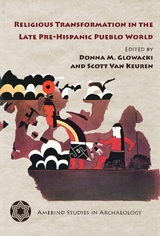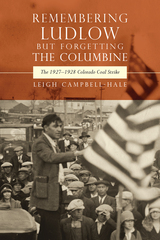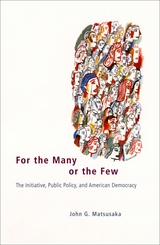
Drawing upon a century of evidence, Matsusaka argues against the popular belief that initiative measures are influenced by wealthy special interest groups that neglect the majority view. Examining demographic, political, and opinion data, he demonstrates how the initiative process brings about systematic changes in tax and expenditure policies of state and local governments that are generally supported by the citizens. He concludes that, by and large, direct democracy in the form of the initiative process works for the benefit of the many rather than the few.
An unprecedented, comprehensive look at the historical, empirical, and theoretical components of how initiatives function within our representative democracy to increase political competition while avoiding the tyranny of the majority, For the Many or the Few is a most timely and definitive work.

Unique among readers in American political and social thought, From Many, One is a broad and balanced anthology that explores the problem of diversity and American political identity throughout American history. From the classic texts of the American political tradition to diverse minority writings, this book offers a wide spectrum of ideas about identity, gender, immigration, race, and religion, and addresses how these issues relate to the concept of national unity.
Covering the gamut of viewpoints from majority to minority, from conservative to radical, from assimilationist to separatist, the authors range from the Founding Fathers to Frederick Jackson Turner, from Abigail Adams to bell hooks and Catharine MacKinnon; from Abraham Lincoln to Malcolm X; from Roger Williams to Ralph E. Reed.
Sinopoli's extensive introductory and concluding essays set the context for and draw out the implications of the fifty readings. The conclusion includes case studies of three minority groups—homosexuals, Mexican-Americans, and Chinese-Americans—to illustrate further the themes of the volume. Brief introductions to each reading and to each of the five sections provide background information.
In examining one of the central questions of American public life—the issue of national diversity—From Many, One will be a useful text for courses in American political thought, sociology, American Studies, and American history.
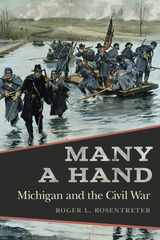
When war came to the nation in 1861, Michiganians rallied around the Stars and Stripes and readily agreed with a veteran politician who declared, “He who is not for his country is against her.” Even as the conflict grew bloody and costly, they remained committed to suppressing the rebellion. By war’s end, an astonishing 50 percent of its military-age males had enlisted in the army. This Michigan Civil War chronicle is more than a story about soldiers’ heroism on distant battlefields. It also includes the often-overlooked role of women—some of whom refused to stay home and went to war. Also buried in the historical record are accounts of white soldiers whose views on slavery and African Americans, especially those in uniform, were transformed. There is also a much-needed exploration of Michigan’s response to the shocking assassination of a beloved president. Many a Hand captures these stories in a single volume.

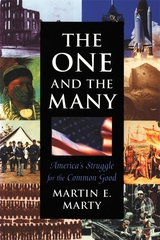
E pluribus unum no longer holds. Out of the many have come as many claims and grievances, all at war with the idea of one nation undivided. The damage thus done to our national life, as too few Americans seek a common good, is Martin Marty's concern. His book is an urgent call for repair and a personal testament toward resolution.
A world-renowned authority on religion and ethics in America, Marty gives a judicious account (itself a rarity and a relief in our day of uncivil discourse) of how the body politic has been torn between the imperative of one people, one voice, and the separate urgings of distinct identities--racial, ethnic, religious, gendered, ideological, economic. Foreseeing an utter deadlock in public life, with devastating consequences, if this continues, he envisions steps we might take to carry America past the new turbulence.
While the grand story of oneness eludes us (and probably always will), Marty reminds us that we do have a rich, ever-growing, and ever more inclusive repertory of myths, symbols, histories, and, most of all, stories on which to draw. He pictures these stories, with their diverse interpretations, as part of a conversation that crosses the boundaries of groups. Where argument polarizes and deafens, conversation is open ended, guided by questions, allowing for inventiveness, fair play, and dignity for all. It serves as a medium in Marty's broader vision, which replaces the restrictive, difficult, and perhaps unattainable ideal of "community" with the looser, more workable idea of "association."
An "association of associations" is what Marty contemplates, and for the spirit and will to promote it he looks to eighteenth-century motifs of sentiment and affection, convergences of intellect and emotion that develop from shared experience. And as this book so eloquently reminds us, America, however diverse, is an experience we all share.
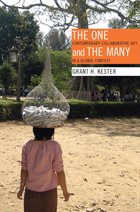
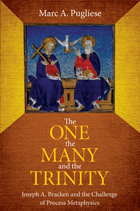
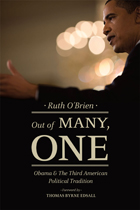
Bearing traces of Baruch Spinoza, John Dewey, and Saul Alinsky, Obama’s progressivism embraces the ideas of mutual reliance and collective responsibility, and adopts an interconnected view of the individual and the state. So, while Obama might emphasize difference, he rejects identity politics, which can create permanent minorities and diminish individual agency. Analyzing Obama’s major legislative victories—financial regulation, health care, and the stimulus package—O’Brien shows how they reflect a stakeholder society that neither regulates in the manner of the New Deal nor deregulates. Instead, Obama focuses on negotiated rule making and allows executive branch agencies to fill in the details when dealing with a deadlocked Congress. Similarly, his commitment to difference and his resistance to universal mandates underlies his reluctance to advocate for human rights as much as many on the Democratic left had hoped.
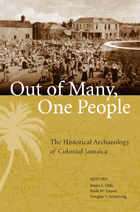
Normal0falsefalsefalseEN-USX-NONEX-NONEMicrosoftInternetExplorer4

Never before has the idea of democracy enjoyed the global dominance it holds today, but neoliberalism has left the practice of democracy in deep crisis.
Marianne Maeckelbergh argues that the most promising model for global democracy is not coming from traditional political parties or international institutions, but from the global networks of resistance to neoliberal economics, known collectively as the Alter-globalisation movement. Through extensive ethnography of decision-making practices within these movements, Maeckelbergh describes an alternative form of global democracy in the making.
Perfect for activists and students of political anthropology, this powerful and enlightening book offers radical changes.
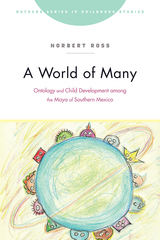
READERS
Browse our collection.
PUBLISHERS
See BiblioVault's publisher services.
STUDENT SERVICES
Files for college accessibility offices.
UChicago Accessibility Resources
home | accessibility | search | about | contact us
BiblioVault ® 2001 - 2025
The University of Chicago Press


